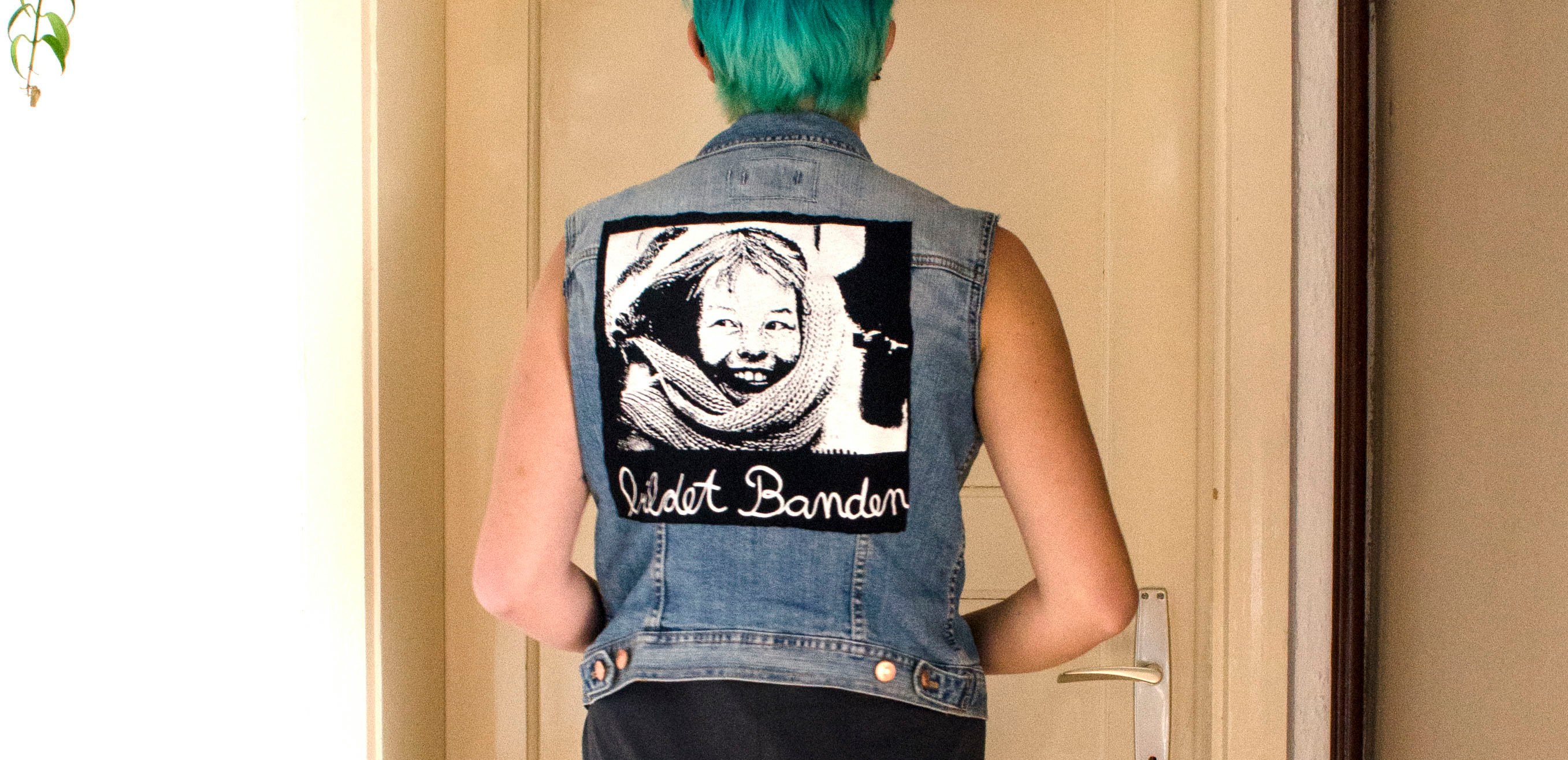In your opinion, what distinguishes punk rock from other subcultures?
Sarah: When I came across punk, I was 13, and I didn’t know any other people who listened to punk rock. I thought that it was a community where you stick together, where you can be who you want to be; where you are critical and supportive.
Were gender, women or sexism in punk a topic for you from the beginning?
Sarah: These topics didn’t “consciously” become important to me until relatively late, probably around 17 or 18, when I started to deal with feminism. The fact that some things didn’t sit well with me, that I felt treated unfairly, that I didn’t feel like I was being taken seriously, or feeling that something wasn’t going the way it was supposed to; those are feelings I’ve always had, but it wasn’t until I came to terms with feminism that I was able to name these problems.
What role does sexism play in punk rock?
Sarah: What scares me when I go to concerts, is how often I realize how present this theme really is in punk. Women on stage are quite often judged solely by their appearance without paying any attention to their music at all. Or you just get felt up in the crowd.
I have the feeling that in my circle of friends, more and more people are becoming aware of and interested in this topic. That is of course great and is very encouraging, until you bump into a whole group of guys, who don’t even seem to have grasped the concept yet.
What do you think can be done about it?
Sarah: Awareness teams are certainly not a bad start. Nowadays you can find them more and more at concerts. They can mainly be recognized by optical features such as a colored ribbon or a badge. If you feel like you are in a situation where you need support you have the possibility to turn to these people.
I definitely feel that in recent years there have been increasing attempts to counteract this actively, and in the best case combat it with preventive work. The biggest mistake for me, is patting yourself on the back and saying we are so open and anti-sexist and we don’t have to deal with it any more. Every one of us has internalized sexism in some form or the other; the difference for me is whether you are willing to deal with it critically and change something about it or not.
Girls to the Front is a phrase that has been heard more often at concerts in the last year. What’s behind all this?
Sarah: The phrase Girls to the Front was first coined by Kathleen Hanna from Bikini Kill. Women and trans- and non-binary people are invited to go to the front of the stage and watch shows. But it should also be considered as an invitation to men to make room for others, be it in front of the stage or in the moshpit. But it is also an invitation to women in general to actively shape the scene, to found bands, to get involved and to create content.
Obviously you also deal with feminism. How does feminism influence punk rock and vice versa?
Sarah: Feminism has been a theme in punk rock since the 1990s, and it started with the Riot Grrrl movement, among others. And since punk rock is political for me, it has to deal with feminism, which for me also means creating a safe environment for trans and non-binary people. Unfortunately, for many punk bands, political thinking stops with the fact that they see themselves as anti-fascist and maybe even anti-capitalist.
Fortunately, the Riot Grrrl movement has also made it into public discourse. Pussy Riot has also very often become the subject of the media and the general public in recent years. How do you see the development of the last decades?
Sarah: I can already see that the topic of feminism is becoming more and more conscious in our society, whether it is through Me too! or simply through T-shirts with feminist prints like the ones you could buy everywhere for a while. But I also see a lot of men willing to fight tooth and nail to prevent any change at all. Especially in punk it is often said that punk is supposed to be provocative and to be offensive. For me punk has always been a mouthpiece for minorities, for people who have something to criticize about social conditions. So what is wrong with criticizing sexism? Punk should not be a subculture in which cis males can wallow undisturbed in their egos. Being punk should not be used as an excuse for abusive behavior or the distribution of offensive, discriminatory content.
Can you suggest bands, magazines, documentaries, books etc. to our readers* if they want to get more information.
Sarah: I love DIY zines like Okapi Riot and Femtrail. I was thrilled by the book Our piece of punk. It contains drawings, comics, text contributions and discussions and deals with queer_feminism in punk.
I think Petrol Girls and Deutsche Laichen are great.
Anything special you want to say?
Sarah: In light of the current situation, I would like to repeat this sentence at the end:
Every one of us has internalized sexism in some way; what is decisive, is whether or not we are willing to deal with it critically.
Thank you very much for the interview.